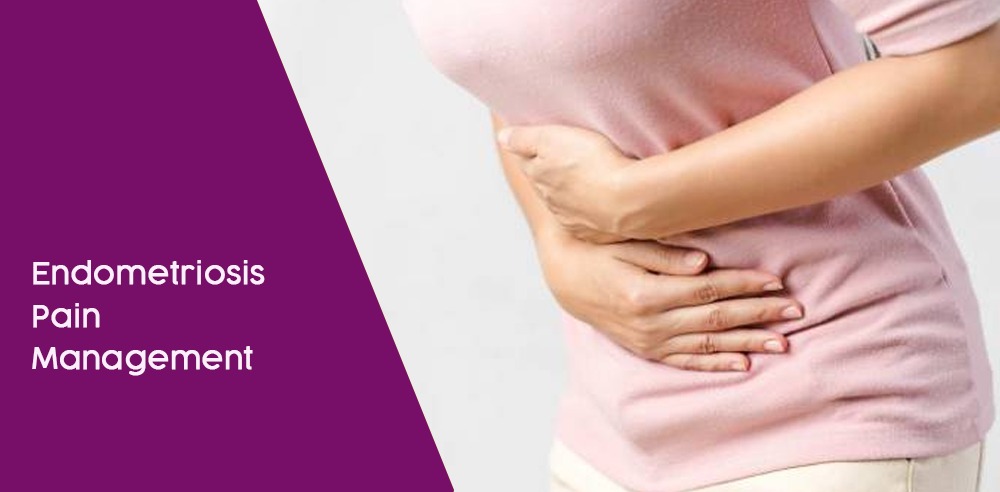Understanding Endometriosis Pain
Endometriosis is a chronic condition in which tissue similar to endometrium grows outside the uterus, most commonly to the ovaries, fallopian tubes, and stomach. The condition affects nearly one in ten reproductive-aged women, and there is no cure. Most symptoms are associated with the reproductive system, such as heavy or abnormal periods, constipation during periods and chronic fatigue.
Endometriosis pain is one of the most commonly cited symptoms for people with the condition. In a survey of over 300 women with endometriosis, 83% indicated that they experienced painful periods, and 72% said they had pelvic pain not related to menstruation. Although there is no cure for endometriosis, there are ways to treat the symptoms. Treatments for pain in endometriosis vary depending on the severity of your pain, age and plans to become pregnant. No matter your current situation, you do not have to suffer in silence. Your Genesis ObGyn can work with you to find a treatment option that helps manage your symptoms and fits your lifestyle.
Endometriosis Medication
Medication is often the first-line treatment for endometriosis pain relief. Medication can include over-the-counter pain relievers during your period or ongoing hormonal contraception. Finding the proper medication is often a matter of trial and error, so you may have to try a few different methods before finding one that works for you. Always consult your doctor before starting a new medication, and keep notes of the severity and duration of your symptoms so you can chart how well the treatment is working.
OTC Anti-Inflammatories
OTC painkillers with anti-inflammatory agents (NSAIDs), such as ibuprofen, can be a good option for treating endometriosis pain. They work by preventing the body from producing prostaglandins, hormone-like lipids that cause the womb to contract during menstruation, which can be painful for people with endometriosis. However, OTC painkillers only provide temporary relief, and there is a limit to how many you can take in one day. Additionally, long-term use carries risks, such as gastrointestinal bleeding and an increased risk of cardiovascular problems. If you experience pain mostly during your period, taking an OTC painkiller a few days before your period starts can help reduce the pain.
Anti-Depressants
Selective serotonin reuptake inhibitors (SSRIs), or antidepressants, have been recognized for their pain-relieving potential for several decades. The body’s messenger substances, norepinephrine and serotonin, inhibit pain. SSRIs keep these pain-inhibiting messengers active longer, thereby reducing pain perception. However, SSRIs are only available via prescription and can have potential side effects, such as low blood pressure, dry mouth, and dizziness.
Prescription Pain Medication
If you have severe endometriosis pain, your provider may prescribe something stronger, such as an opioid or muscle relaxer. While both of these medications can provide significant pain relief, they also carry a risk of addiction and should only be used under the strict guidance of your healthcare provider. Additionally, while taking muscle relaxers or opioids, you may not be able to operate a vehicle or perform other tasks, which could impact your daily life.
Hormonal Treatment Options for Endometriosis
Most research shows a connection between endometriosis and reproductive hormones, so it makes sense that hormone-modulating therapies are effective treatments. Hormonal treatments address the reason behind endometriosis pain–abnormal tissue growth. A few options in this category can work, depending on your age, family planning desires, and other variables.
Hormonal Birth Control
Endometriosis usually responds to estrogen and progesterone, the reproductive hormones that control your menstrual cycle. Combination hormonal contraception, including the pill, IUD, vaginal ring and patch, can provide ongoing pain relief and help manage heavy or abnormal periods. Progestins alone are also effective in treating endometriosis. With both combination and progestin-only contraception, you will most likely not get pregnant, so if you want to become pregnant, you will have to stop taking them.
Gonadotroin-releasing Hormone (GnRH) Analogues
GnRH analogs (agonists and antagonists) work by inhibiting the production of estrogen, which causes endometriosis tissue to shrink. This class of hormonal medication is available as a daily pill, a shot, or a nasal spray. Research shows that women taking GnRH analogs report less dysmenorrhea (painful periods), pelvic pain, and tenderness. However, like hormonal contraception, GnRH analogs are not a viable option for those who want to become pregnant, as they induce synthetic menopause.
Androgen Receptor Agonists
Danazol is a synthetic androgen, a hormone produced in the male reproductive system. It works by suppressing the growth of endometrial tissue and is considered an effective treatment option. However, the medication’s side effects can negatively impact your quality of life, such as weight gain, decreased breast size and libido, bloating, and fluid retention. Most women will stop ovulating and menstruating while on Danazol, so it is not a good option for those who want to become pregnant.
Laparoscopic Surgery for Endometriosis
Laparoscopic surgery is a minimally invasive procedure performed through a small incision near your belly button. During this surgery, the provider uses thin tools or robotic assistance to remove endometriosis scarring and lesions. This is a viable option for those who want to become pregnant, as endometriosis is a leading cause of infertility, and removing these growths can facilitate ovulation. However, the tissue can sometimes grow back, so you should consider whether you are willing to undergo subsequent procedures.
Endometriosis Pain Natural or Home Remedies
If you are interested in exploring natural remedies for endometriosis, you can try a few at-home and non-medicinal remedies to relieve pain and treat other symptoms. These include:
- Acupuncture: Some women report that regular acupuncture appointments provide pain relief.
- Physical or Pelvic Floor Therapy: Training the pelvic floor muscles can be an effective long-term treatment option. It also has the added benefits of better posture and a reduced risk of incontinence.
- Heat therapy: A heated pad, hot bath or hot water bottle is one of the oldest remedies for period pain. They are accessible, easy to use and provide quick relief.
- Exercise: Some women report that yoga, tai chi and pilates help with chronic endometriosis pain–similar to pelvic floor therapy, they can help train the pelvic floor muscles and help with stress.
Discuss Treatment of Pain in EndometriosisWith Your Provider
Endometriosis can be a painful condition that severely impacts your quality of life. Many women with the condition report both chronic pain and painful periods, so you may want something that provides ongoing relief. Depending on your age, lifestyle and desire for children, your Genesis provider will work with you to find the best treatment option for you. Contact us to request an appointment today.


